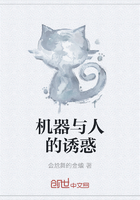This employment and the little taste which Bertha had for the blisses of matrimony much delighted the old man, since he would have been unable to return the affection of a too amorous wife, and desired to practice economy, to have the wherewithal for a second child.
After six years had passed away, the mother was compelled to give her son into the hands of the grooms and other persons to whom Messire de Bastarnay committed the task to mould him properly, in order that his heir should have an heritage of the virtues, qualities and courage of the house, as well as the domains and the name. Then did Bertha shed many tears, her happiness being gone. For the great heart of this mother it was nothing to have this well-beloved son after others, and during only certain short fleeting hours. Therefore she became sad and melancholy. Noticing her grief, the good man wished to bestow upon her another child and could not, and the poor lady was displeased thereat, because she declared that the ****** of a child wearied her much and cost her dear. And this is true, or no doctrine is true, and you must burn the Gospels as a pack of stories if you have not faith in this innocent remark.
This, nevertheless, to certain ladies (I did not mention men, since they have a smattering of the science), will still seem an untruth.
The writer has taken care here to give the mute reasons for this strange antipathy; I mean the distastes of Bertha, because I love the ladies above all things, knowing that for want of the pleasure of love, my face would grow old and my heart torment me. Did you ever meet a scribe so complacent and so fond of the ladies as I am? No; of course not. Therefore, do I love them devotedly, but not so often as I could wish, since I have oftener in my hands my goose-quill than I have the barbs with which one tickles their lips to make them laugh and be merry in all innocence. I understand them, and in this way.
The good man Bastarnay was not a smart young fellow of an amorous nature, and acquainted with the pranks of the thing. He did not trouble himself much about the fashion in which he killed a soldier so long as he killed him; that he would have killed him in all ways without saying a word in battle, is, of course, understood. The perfect heedlessness in the matter of death was in accordance with the nonchalance in the matter of life, the birth and manner of begetting a child, and the ceremonies thereto appertaining. The good sire was ignorant of the many litigious, dilatory, interlocutory and proprietary exploits and the little humourings of the little fagots placed in the oven to heat it; of the sweet perfumed branches gathered little by little in the forests of love, fondlings, coddlings, huggings, nursing, the bites at the cherry, the cat-licking, and other little tricks and traffic of love which ruffians know, which lovers preserve, and which the ladies love better than their salvation, because there is more of the cat than the woman in them. This shines forth in perfect evidence in their feminine ways. If you think it worth while watching them, examine them attentively while they eat: not one of them (I am speaking of women, noble and well-educated) puts her knife in the eatables and thrusts it into her mouth, as do brutally the males; no, they turn over their food, pick the pieces that please them as they would gray peas in a dovecote; they suck the sauces by mouthfuls; play with their knife and spoon as if they are only ate in consequence of a judge's order, so much do they dislike to go straight to the point, and make free use of variations, finesse, and little tricks in everything, which is the especial attribute of these creatures, and the reason that the sons of Adam delight in them, since they do everything differently to themselves, and they do well.
You think so too. Good! I love you.
Now then, Imbert de Bastarnay, an old soldier, ignorant of the tricks of love, entered into the sweet garden of Venus as he would into a place taken by assault, without giving any heed to the cries of the poor inhabitants in tears, and placed a child as he would an arrow in the dark. Although the gentle Bertha was not used to such treatment (poor child, she was but fifteen), she believed in her virgin faith, that the happiness of becoming a mother demanded this terrible, dreadful bruising and nasty business; so during his painful task she would pray to God to assist her, and recite /Aves/ to our Lady, esteeming her lucky, in only having the Holy Ghost to endure. By this means, never having experienced anything but pain in marriage, she never troubled her husband to go through the ceremony again. Now seeing that the old fellow was scarcely equal to it--as has been before stated--she lived in perfect solitude, like a nun. She hated the society of men, and never suspected that the Author of the world had put so much joy in that from which she had only received infinite misery. But she loved all the more her little one, who had cost her so much before he was born. Do not be astonished, therefore, that she held aloof from that gallant tourney in which it is the mare who governs her cavalier, guides him, fatigues him, and abuses him, if he stumbles. This is the true history of certain unhappy unions, according to the statement of the old men and women, and the certain reason of the follies committed by certain women, who too late perceive, I know not how, that they have been deceived, and attempt to crowd into a day more time than it will hold, to have their proper share of life. That is philosophical, my friends. Therefore study well this page, in order that you may wisely look to the proper government of your wives, your sweethearts, and all females generally, and particularly those who by chance may be under your care, from which God preserve you.















